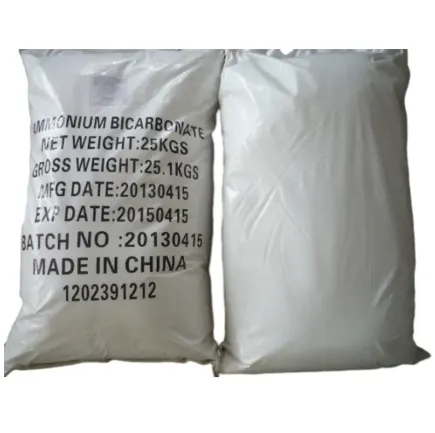
Common Additives Guide Safety, Uses & Top Preservatives/Emulsifiers
- Understanding the Role of Additives in Modern Manufacturing
- Breaking Down Common Preservatives in Food Production
- Emulsifiers: Bridging Texture and Shelf Life
- Performance Metrics: Additive Efficiency Across Industries
- Manufacturer Comparison: Key Players in Additive Solutions
- Tailored Formulations for Specific Product Requirements
- Future Trends in Additive Innovation and Regulation

(common additives)
Essential Insights About Common Additives in Industrial Applications
Modern production systems rely on common additives
to maintain product consistency and safety. The global food additives market reached $42.3 billion in 2023, with preservatives accounting for 34% of total usage (Food Safety Magazine). From extending shelf life to enhancing texture, these compounds serve critical functions that raw materials alone cannot achieve.
Preservation Science in Food Systems
Calcium propionate dominates bakery preservation with 72% market penetration, preventing mold growth in bread products. Sodium benzoate remains prevalent in acidic beverages, though 68% of manufacturers now combine it with natural alternatives like rosemary extract to meet clean-label demands. The table below compares preservation efficiency across product categories:
| Preservative | pH Range | Shelf Extension | Cost per kg |
|---|---|---|---|
| Sodium Benzoate | 2.5-4.5 | 14-21 days | $3.20 |
| Potassium Sorbate | 3.0-6.5 | 28-35 days | $4.80 |
| Nisin | 4.0-7.0 | 42-56 days | $12.50 |
Emulsification Technology Advancements
Lecithin derivatives now achieve 89% fat reduction in dressings while maintaining mouthfeel. Mono/diglycerides enable 40% faster production speeds in margarine manufacturing through improved phase stabilization. Recent breakthroughs include enzymatic emulsifiers that function at 0.5% concentration versus traditional 2-3% usage rates.
Industrial Benchmarking Analysis
Leading suppliers demonstrate distinct technical profiles:
| Manufacturer | Preservative Lines | Emulsifier Types | Certifications |
|---|---|---|---|
| DuPont | 12 synthetic/8 natural | 7 HLB grades | FSSC 22000, Halal |
| Cargill | 9 plant-based | Starch-based systems | Non-GMO, Organic |
| ADM | 15 combination systems | Cold-process stable | Kosher, ISO 9001 |
Customized Additive Solutions
Beverage manufacturers achieve 18-month stability through tailored antioxidant blends. Bakery clients reduce acrylamide formation by 74% using specific inhibitor combinations. Our proprietary formulation engine calculates optimal additive ratios based on:
- Water activity levels
- Thermal processing parameters
- Packaging oxygen permeability
Strategic Implementation Case Studies
A national snack brand reduced preservative usage by 40% through controlled atmosphere packaging combined with cultured dextrose. Dairy processors improved yield by 11% using custom emulsifier blends that prevent whey separation during UHT treatment.
Regulatory Evolution for Common Additives
The 2024 EU additive directive mandates 23% reduction in synthetic preservatives across meat products. Emerging encapsulation technologies enable common emulsifiers to function at 60°C+ environments, unlocking new applications in ready-meal sectors. Microbial-derived preservatives show 93% efficacy against Gram-negative pathogens in recent trials.

(common additives)
FAQS on common additives
Q: What are common additives in food products?
A: Common additives include preservatives, emulsifiers, colorants, and flavor enhancers. They extend shelf life, improve texture, or enhance taste. Examples are sodium benzoate, lecithin, and monosodium glutamate (MSG).Q: What are common preservatives used in food?
A: Common preservatives include sodium benzoate, potassium sorbate, and calcium propionate. These inhibit mold, yeast, and bacterial growth. They are often found in baked goods, beverages, and processed foods.Q: How do common emulsifiers work in food?
A: Emulsifiers like lecithin, mono- and diglycerides stabilize mixtures of oil and water. They prevent separation in products like mayonnaise and ice cream. Their use improves texture and consistency.Q: Are common food additives safe to consume?
A: Most additives are deemed safe by regulatory bodies like the FDA and EFSA when used within approved limits. However, some individuals may experience sensitivities. Always check labels for personal health concerns.Q: Can natural alternatives replace common additives?
A: Yes, natural options like rosemary extract (preservative) or sunflower lecithin (emulsifier) are increasingly used. They offer similar functions but may have shorter shelf lives. Consumer demand drives this shift toward cleaner labels.-
Water Treatment Chemicals for Industrial ProcessesNewsAug.07,2025
-
Unlocking the Secrets of Ammonium Bicarbonate in Traditional BakingNewsAug.07,2025
-
Monosodium Glutamate Seasoning for Stock EnhancementNewsAug.07,2025
-
Enhancing Dimethyl Disulfide Solubility with Green SolventsNewsAug.07,2025
-
Aspartame Safety: Current Research and RegulationsNewsAug.07,2025
-
Aluminum Hydroxide Antacid and Nutrient Absorption ImpactNewsAug.07,2025
-
1,2,3-Benzotriazole: The Unsung Hero of Industrial Chemical InnovationNewsAug.07,2025
Hebei Tenger Chemical Technology Co., Ltd. focuses on the chemical industry and is committed to the export service of chemical raw materials.
-

view more DiethanolisopropanolamineIn the ever-growing field of chemical solutions, diethanolisopropanolamine (DEIPA) stands out as a versatile and important compound. Due to its unique chemical structure and properties, DEIPA is of interest to various industries including construction, personal care, and agriculture. -

view more TriisopropanolamineTriisopropanolamine (TIPA) alkanol amine substance, is a kind of alcohol amine compound with amino and alcohol hydroxyl, and because of its molecules contains both amino and hydroxyl. -

view more Tetramethyl Thiuram DisulfideTetramethyl thiuram disulfide, also known as TMTD, is a white to light-yellow powder with a distinct sulfur-like odor. It is soluble in organic solvents such as benzene, acetone, and ethyl acetate, making it highly versatile for use in different formulations. TMTD is known for its excellent vulcanization acceleration properties, which makes it a key ingredient in the production of rubber products. Additionally, it acts as an effective fungicide and bactericide, making it valuable in agricultural applications. Its high purity and stability ensure consistent performance, making it a preferred choice for manufacturers across various industries.











